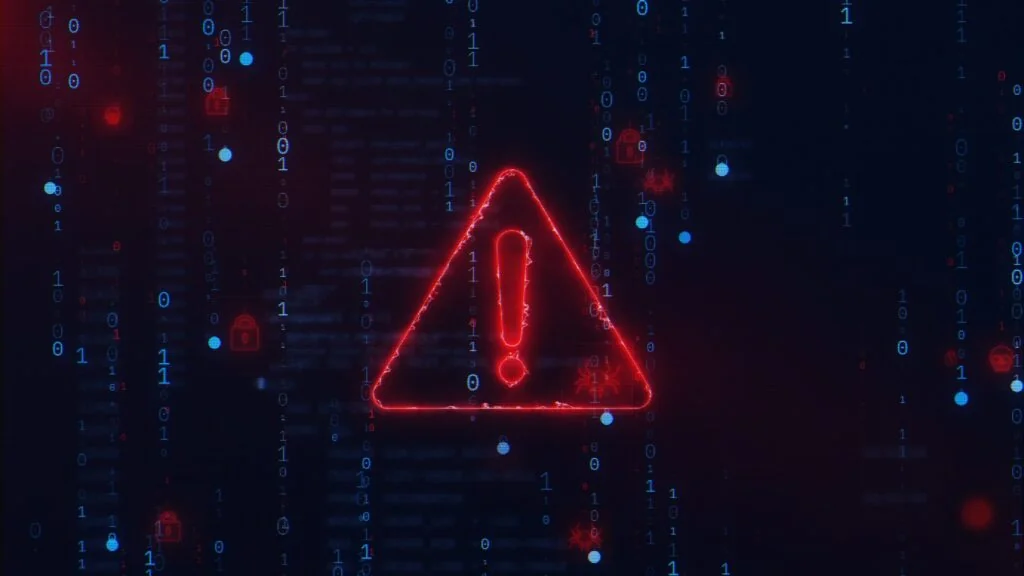Beware of the scams targeting job seekers. I’d say “it’s a new low” for scammers to target people who are looking for work, but no, unfortunately… the scammers seem to reside at those depths.
Scammers who aren’t who they claim to be
Beware these tactics for scammers trying to mask their true identity.
- Text-only interviews (no video call).
- AI-generated video. Some sophisticated scammers are using AI to make them look like someone they’re not.
- LinkedIn profiles or other online content may be convincing fakes. Or hacked.
- Scammers impersonating legitimate people. The name on the email is a real recruiter, but the actual sender is a scammer pretending to be the recruiter.

Photo from Getty Images on Unsplash.
- Lookalike URLs, e.g., if the real site is companyname dot com, but the email is from companynameinc dot com.
- Spoofed email.
- Entirely fake companies.
Scammers after a job seeker’s money
Don’t share your bank account information until you’re hired at a company you’re 100% sure is legitimate and you’re ready to get that paycheck by direct deposit! Even something that seems like it couldn’t be a scam, like accepting a check from the company as payment for something, has the potential to be a problem.
Watch out for these scams:
- Requests for payment or for your banking info, e.g. to cover “fees.” This includes payment for background checks or credit reports.
- Exclusive paid content. Would you pay extra to have the inside scoop on how to get hired at Google? That exclusive content may not be anything other than publicly shared information.
- Money launderers. Don’t take any jobs handling money for others unless you’re completely sure of their legitimacy. Scammers may be criminals trying to hide the trail of money they’ve stolen.
- Being sent a check e.g., for equipment or training. Even after you’ve been “hired”.
- You buy a laptop, they send you a check for the amount, you send them the laptop “to be configured,” the check bounces and they disappear.
- They “overpay” you and ask you to send some back. You send it back, but then their check bounces.

Photo by Money Knack on Unsplash
Wait, wouldn’t it be okay to accept a check and only act on it after it clears? No, a cleared check isn’t proof that it hasn’t bounced. From the FTC site on fake check scams:
By law, banks have to make deposited funds available quickly. Even if you see the funds in your account, that doesn’t mean it’s a good check. Fake checks can take weeks to be discovered and untangled. By that time, the scammer has any money you sent, and you’re stuck paying the money back to the bank.
Other red flags
- Sharing your personal information too early in the process (e.g., you shouldn’t need to share a social security number to start the conversation)
- Anything unusual they ask you to run on your own machine: custom software, a project with a github repository. These can be malware designed to steal your personal information.
- Job offers for roles you didn’t apply for.
- Salaries much better than you’d expect for the position.
- Be suspicious if you’re getting a lot of pressure from the company to do things quickly. They may be trying to keep you from doing proper research.
- Trust your intuition if something feels “off” or seems too good to be true.
How to protect yourself
As a job seeker, what can you do to protect yourself from scams?
- If this isn’t a company you’re familiar with, see what you can learn about them. Sites like LinkedIn and Glassdoor might help, but they aren’t alone proof of a legitimate company.
- You could also ask friends if they are familiar with the company, or see if you have any second-degree contacts there on LinkedIn.
- Look for the company name + “scam” or “complaint” online.
- Verify via the company’s real website. Reach out to them rather than relying only on contact information given to you.
- When possible, meet someone in person.
- I’ve heard that, if you suspect AI-generated video, you can ask the person to put their hand in front of their face. Apparently, AI has a hard time handling that. I heard a story of one sketchy interviewer who refused to do this.

“I don’t know about this… put your paw in front of your face?” Photo from Getty Images on Unsplash.
Things you can do if scammed
What if a scammer contacted you? What if things went too far before you realized something was amiss?
- Freeze your account at all three major credit bureaus (Equifax, Experian, TransUnion). Freezing is free.
- Change your banking info, if you’ve given it out.
- If the scammer impersonated a real company, contact them via their website to report it.
- Report LinkedIn-based scams to LinkedIn.
- Report it to the authorities. The police for your city or town might take a police report. See also:
- The Internet Crime Complaint Center
- The Federal Trade Commission
- Your state’s Attorney General
- Educate others.
- Beware additional scammers claiming they can help protect you, get your money back, etc.
And: don’t beat yourself up. The scammers are getting harder and harder to detect.
“Job seekers beware scams” was originally a post on LinkedIn, but it seemed worthy of a permanent home on my website.
